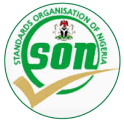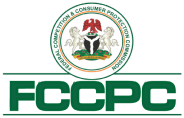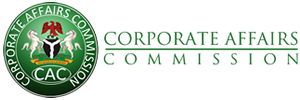WHISTLEBLOWING POLICY FOR NAFDAC
1. Introduction: National Agency for Food and Drug Administration and Control (NAFDAC) is committed to upholding the highest standards of integrity, transparency and accountability in the execution of her regulatory responsibilities.
This Whistleblowing Policy aims to provide a framework for employees, stakeholders and members of the public to report information about illegal or unethical activity including financial corruption, transactional corruption, bribery, fraud and any other violation of laws and regulations within the purview of NAFDAC and protection for the Whistleblowers.
The primary goal of the NAFDAC Whistleblowing Policy is to support the Federal Governments’ fight against financial crimes and corruption to expose the perpetration of such illegal or unethical activities hampering the regulatory activities of the Agency.
2. Legal Authority: The campaign against corruption in Nigeria is championed by the Independent Corrupt Practices and Other Related Offences Commission which is legally mandated by an Act of the National Assembly of Nigeria – the ICPC Act 2004, to receive and investigate complaints from members of the public on allegation of corrupt practices, prosecute the offenders and, protect the informants.
Hence, the aforementioned Act provides under Section 64 viz:
Protection of informers and information:
64.-(1)Subject to sub-section (2) where any complaint made by any officer of the commission states that the complaint is made in consequence of information received by the officer making the complaint, the information referred to in the complaint and the identity of the person from whom information is received shall be secret between the officer who gave the information, and everything contained in such information, identity of the person who gave the information and all other circumstances relating to the information, including the place where it was given, shall not be disclosed or be ordered or required to be disclosed in public but only to the trial judge and the defence lawyer in attendance in any civil, criminal or other proceedings in any court or tribunal.
(2) If any book, paper or other document, or any visual or sound recording, or other matter or material which is given in evidence or liable to inspection in any civil, criminal or other proceedings in any court, or other authority as are referred to sub-section (1) contains any entry or other matters in which any person who gave the information is named or described or shown, or which might lead to his discovery, the court before which the proceedings are held shall cause all such parts thereof or passages therein to be concealed from view or to be obliterated or otherwise removed so far as is necessary to protect such person from discovery.
(3)Any person who gives the information referred to in sub-section (1) knowing the information to be false shall be guilty of an offence and shall on conviction be liable to imprisonment for a term not exceeding ten years, and shall also be liable to a fine not exceeding one hundred thousand naira; PROVIDED THAT sub-section (1) and (2) shall not apply to any investigation or prosecution for any offence arising from any breach of the provisions of this sub-section.
The infusion of the provision of S. (64) of the ICPC Act 2004 into the NAFDAC Whistleblowing Policy and the application of this Policy in tackling corruption within the Agency will guarantee that the provision of Section 5 (a-s) of the National Agency for Food and Drug Administration and Control CAP N1 LFN 2004 which provides the core regulatory functions of the Agency are executed devoid of corruption.
3. Scope: This policy applies to all NAFDAC employees, stakeholders (contractors, suppliers, clients and the general public).
4. Reporting Mechanism:
a. Confidential Reporting:
- Whistleblowers may report concerns or information related to misconduct or violations by submitting the complaint to the Chairman/Secretary of the NAFDAC ACTU via any of the following platforms:
- Email: reforms@nafdac.gov.ng
- Hotline: 08061332800, 09097630507
- NAFDAC website: nafdac.gov.ng
- A visit to their closest NAFDAC Office and report made to the ACTU Liaison officer attached to the office.
- Please note that all the above listed platforms maintain the highest level of confidentiality for both the Whistleblower and information.
- Information may be provided in English language, Pidgin English or any of the three (3) main Nigerian languages- Igbo, Hausa and Yoruba.
- Whistleblowers are encouraged to provide specific and sufficient details, including specific incidents, dates, names, and any supporting evidence.
b. Protection of Whistleblowers:
- NAFDAC is committed to protecting the identity and confidentiality of Whistleblowers throughout the process, except where required by law. This can be accessed only by authorized personnel involved in the investigation process as outlined in the aforementioned ICPC Act 2004 under section 64 (1) viz: Subject to sub-section (2) where any complaint made by any officer of the commission states that the complaint is made in consequence of information received by the officer making the complaint, the information referred to in the complaint and the identity of the person from whom information is received shall be secret between the officer who gave the information, and everything contained in such information, identity of the person who gave the information and all other circumstances relating to the information, including the place where it was given, shall not be disclosed or be ordered or required to be disclosed in public but only to the trial judge and the defence lawyer in attendance in any civil, criminal or other proceedings in any court or tribunal.
- Retaliation against Whistleblowers is strictly prohibited. Any individual found engaging in retaliatory actions will be subject to disciplinary measures.
5. Investigation Process:
Where the reported corrupt practice deals with financial/transactional corruption relating to sister-Agencies, such will be transmitted to the appropriate Agency through the office of the Director-General NAFDAC on recommendation by the Chairman NAFDAC ACTU.
Where the reported corrupt practice borders on NAFDAC regulatory activities, the following investigation procedure will apply:
a. Review and Assessment:
- The Investigation Committee of NAFDAC ACTU will review and assess each complaint received, ensuring that it falls within the scope of this policy.
- Complaints lacking sufficient details may be subject to further inquiries to obtain additional information.
b. Investigation:
- Once a complaint is deemed credible, NAFDAC ACTU will conduct a thorough investigation by assigning the appropriate Committee to examine the allegations.
- The investigation will be carried out objectively, impartially and in a timely manner, respecting the rights of all parties involved.
c. Follow-up and Reporting:
- NAFDAC ACTU will communicate with the Whistleblower on the progress and outcome of the investigation, within the constraints of confidentiality and privacy laws.
- Appropriate disciplinary or legal actions will be taken if misconduct or violations are substantiated.
6. Protection of Whistleblower Information:
- NAFDAC will ensure that the Whistleblower information provided is securely stored and accessed only by authorized personnel involved in the investigation process as outlined in the aforementioned ICPC Act 2004 under section 64 (1) viz: Subject to sub-section (2) where any complaint made by any officer of the commission states that the complaint is made in consequence of information received by the officer making the complaint, the information referred to in the complaint and the identity of the person from whom information is received shall be secret between the officer who gave the information, and everything contained in such information, identity of the person who gave the information and all other circumstances relating to the information, including the place where it was given, shall not be disclosed or be ordered or required to be disclosed in public but only to the trial judge and the defence lawyer in attendance in any civil, criminal or other proceedings in any court or tribunal.
- Information provided by Whistleblowers will be used exclusively for the purposes of addressing the reported concerns and will not be disclosed to unauthorized parties.
7. Compensation of Whistleblowers:
NAFDAC is committed to providing monetary compensation to eligible Whistleblowers who provide information which lead to the successful disclosure of an illegal or unethical activity which is deemed by the Agency as a qualifying financial corruption, transactional corruption, bribery, fraud or other violation of laws and regulations within the purview of NAFDAC. The following terms will apply to the aforementioned compensation:
- The information must lead to the disclosure of an illegal or unethical activity
- The information provided must be credible and qualifying for compensation based on the Agency’s standards
- The compensation granted will be based on the decision of the NAFDAC Management, subject to the recommendation of the concerned Directorate directly affected by the information provided
- The compensation will be paid to the Whistleblower within one month of conclusion of a thorough and impartial investigation by the Agency into the unethical activity and the information provided.
Hence, the timeline for payment of the compensation begins to count after due diligence has been concluded on the matter.
8. Actions that Constitute False or Malicious Reporting:
- Fabricating Information: This refers to intentionally creating false allegations or inventing incidents or events that did not occur (having full knowledge that such information is untrue) in order to falsely accuse an individual or organization.
- Withholding Relevant Information: Purposefully omitting important details or evidence that would change the overall understanding or outcome of an investigation, thereby misleading investigators.
- Submitting complaints or reports that lack substance: This includes information that lack evidence or credibility with the intention to waste time, resources, or damage the reputation of individuals or organizations.
- Misrepresenting Facts: Deliberately distorting or misrepresenting facts or evidence to mislead investigators or authorities, leading them to draw incorrect conclusions.
- Retaliation: This is done (in a bid to strike back at an individual who made legitimate reports or complaints) by filing false counter-complaints or spreading malicious rumours about them.
- Personal Vendettas: Using the whistleblowing system to settle personal disputes, grudges, or vendettas against individuals or organizations without any genuine concern for wrongdoing.
- False Identity or Anonymous Reports: Submitting reports under a false identity or anonymously with the intent to make false accusations or defame others without being held accountable for one’s actions.
- Manipulating Evidence: Altering or tampering with evidence to mislead investigators or to falsely frame individuals or organizations.
9. False or Malicious Reporting and Punishment:
- False or malicious reporting with the intent to harm individuals or tarnish the reputation of NAFDAC is strictly prohibited and shall be dealt with in line with the provision of the aforementioned section 64 (3) of the ICPC Act 2004 viz: Any person who gives the information referred to in sub-section (1) knowing the information to be false shall be guilty of an offence and shall on conviction be liable to imprisonment for a term not exceeding ten years, and shall also be liable to a fine not exceeding one hundred thousand naira; PROVIDED THAT sub-section (1) and (2) shall not apply to any investigation or prosecution for any offence arising from any breach of the provisions of this sub-sec
Any individual found to be making false or malicious reports will be subject to disciplinary action.
10. Policy Review:
- This Whistleblowing Policy will be reviewed every five (5) years or in the event of an earlier extenuating circumstance such a review of the relevant section (section 64) of the ICPC Act 2004 being the parent Act of this Policy, in order to ensure its alignment, effectiveness and compliance with the said Act.
- The review shall be conducted by the Whistleblowing Policy Drafting Committee of NAFDAC ACTU which shall submit a detailed report to the Chairman of the NAFDAC ACTU outlining any recommended amendments, enhancements or continuations required to ensure consistency with the intent and provisions of the parent Act.






